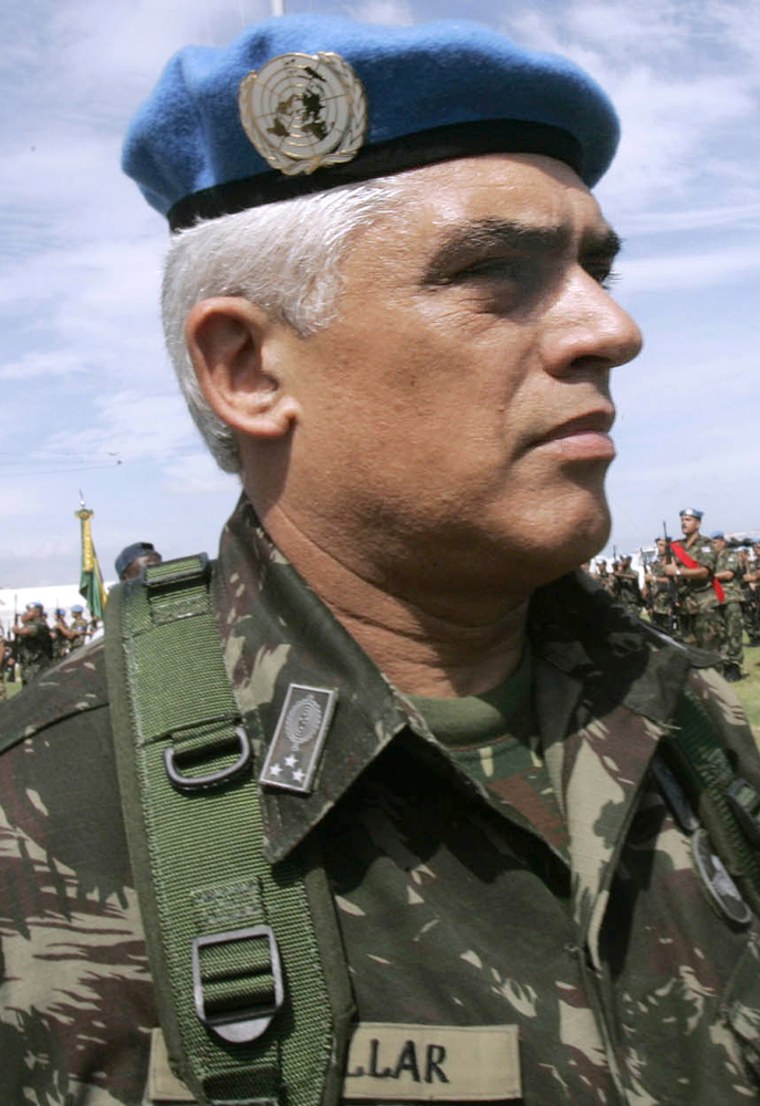The commander of the United Nations’ peacekeeping force in Haiti was found dead in his hotel room on Saturday after apparently shooting himself, U.N. officials said.
Brazilian Lt. Gen. Urano Teixeira Da Matta Bacellar’s death comes as the troubled Caribbean country struggles to organize its first presidential election since a month-long armed revolt ousted then-president Jean-Bertrand Aristide in February 2004.
The general, who had been in command of the 9,000-strong U.N. force in Haiti since the end of August, appeared to have been alone in his suite at the Montana hotel in the capital Port-au-Prince at the time of the shooting.
His gun was found near his body, which was dressed in shorts and a white T-shirt, witnesses said.
“It is unfortunate and devastating to see such a good and honorable general killed in such circumstances,” Brazil’s ambassador to Haiti, Paulo Cordeiro de Andrade Pinto, told Reuters as he left the hotel.
The Brazilian army referred to the incident as a “firearm accident,” according to news agency reports in Brazil. Bacellar grew up in Brazil’s southernmost state of Rio Grande do Sul and was a career military officer.
The army later released a statement saying the armed forces “profoundly lamented” the general’s death and that it would cooperate with the police investigation.
The U.N. mission, known by its acronym MINUSTAH, was sent to Haiti to keep the peace between supporters and foes of Aristide after the 2004 revolt.
But the country of 8.5 million people has continued to be afflicted by political violence and a wave of kidnappings has swept through Port-au-Prince despite the presence of the Brazilian-led U.N. troops and police.
The business sector, which vigorously opposed Aristide, and the interim government have called on the U.N. force to be more aggressive in taking on street gangs that control many of the sprawling slums in Port-au-Prince. Many of the gangs are seen as supporters of the exiled Aristide.
In contrast, civil and leftist groups in Brazil have criticized the U.N. force for being far too aggressive in patrolling the slums. Dozens of civilians have been caught in the cross-fire during gunfights between U.N. troops and gangs.
Originally scheduled for November, the presidential election has been repeatedly put off and is now expected to take place in February.
Haiti’s interim authorities have blamed the U.N. mission and the Organization of American States for the delays, a charge both organizations refute.
